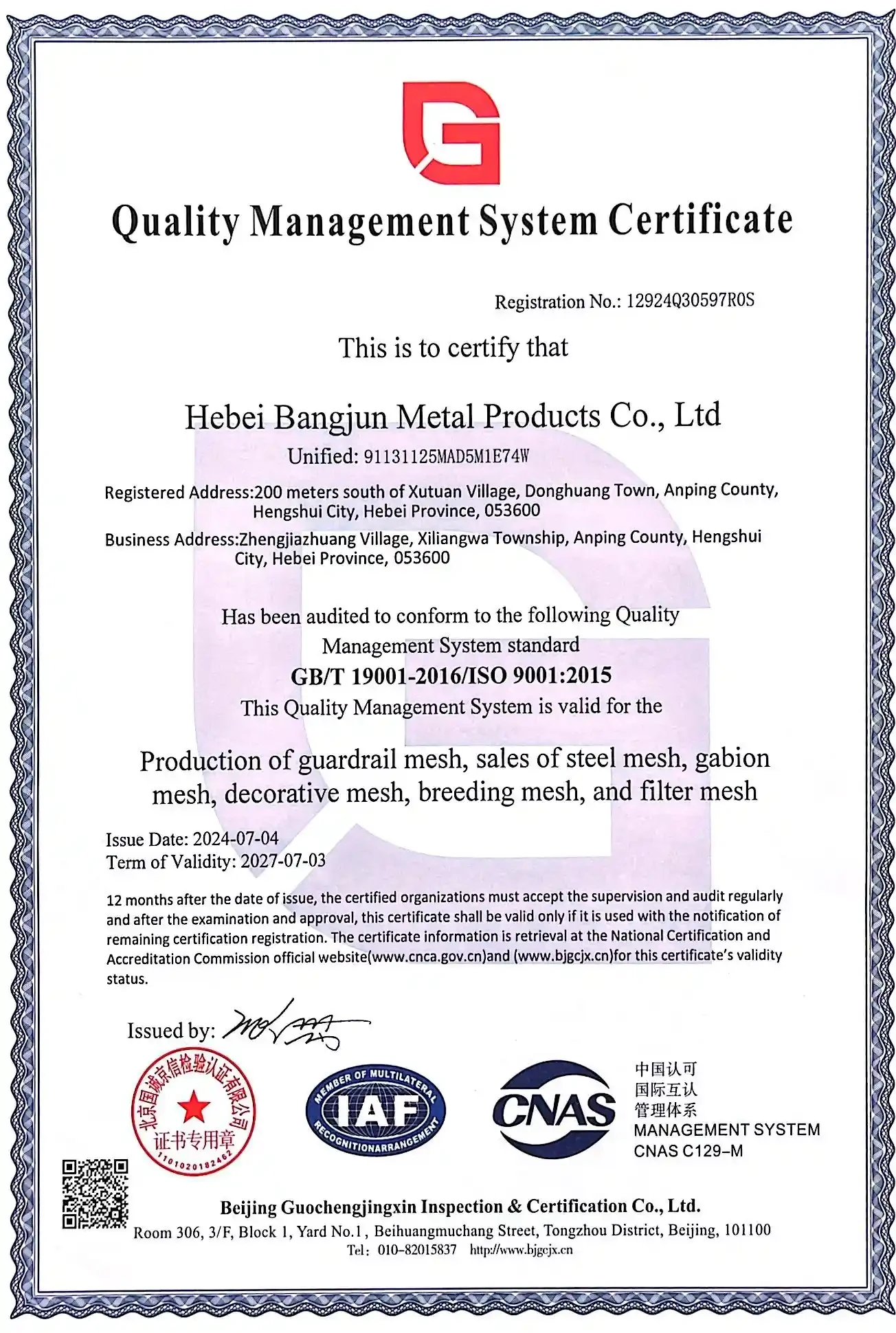Sep . 30, 2024 22:14 Back to list
Stock up on essential fencing supplies for your next outdoor project
Stock Fencing Supplies Ensuring Optimal Livestock Management
When it comes to effective livestock management, securing livestock within designated areas is vital. This is where stock fencing supplies come into play. From ensuring the safety of your animals to protecting crops and maintaining property boundaries, choosing the right fencing materials can significantly impact both the productivity and well-being of your farm.
Importance of Stock Fencing
The primary purpose of fencing for livestock is to contain animals within a safe environment, preventing them from wandering off and causing accidents on roads or damaging neighboring properties. Additionally, proper fencing also helps keep predators at bay, safeguarding livestock from potential harm. Moreover, effective fencing is not just about containment; it also plays a crucial role in managing grazing. By using fencing to create rotation patterns, farmers can maximize pasture utilization, promote better soil health, and ensure that livestock have access to fresh grazing areas.
Types of Stock Fencing Supplies
When selecting stock fencing supplies, it is essential to consider the type of livestock you are managing, the terrain of your property, and budget constraints
. There are several options available, each with its own benefits1. Barbed Wire Fencing This is a common choice for larger livestock like cattle and horses. Barbed wire is robust and can withstand the force of animals pushing against it. As a fencing material, it is economical and can cover large areas, but it has the potential to injure livestock if they become entangled.
2. Electric Fencing This modern approach can be extremely effective for managing all types of livestock. Electric fencing uses a low-voltage current to deter animals from touching it, providing a psychological barrier more than a physical one. It is particularly useful for temporary fencing setups, enabling farmers to create grazing rotations without permanent installations.
3. Wooden Fencing Aesthetic and sturdy, wooden fencing is often used for horses and ornamental farms. While it offers a pleasing visual appeal and a solid barrier, it comes with higher maintenance costs and requires periodic repairs or replacements due to weathering.
4. Woven Wire Fencing This type of fencing provides a strong and durable option for a variety of livestock, including sheep and goats. Woven wire fences are designed to contain animals while preventing them from escaping through small gaps. They can also effectively keep out predators.
stock fencing supplies

5. Composite Fencing Composed of recycled plastic and wood fibers, composite fencing is gaining popularity due to its durability, low maintenance, and resistance to rot and decay. It can be an excellent choice for those looking for a long-lasting solution without the need for constant upkeep.
Choosing the Right Supplies
Selecting the right materials goes beyond simply choosing a type of fence. Several other components are necessary to ensure that your fencing is effective and durable. These supplies include
- Fence Posts Strong and durable posts are essential for supporting your fencing. They can be made of wood, metal, or vinyl, and their spacing depends on the type of fence you choose.
- Gates Proper access points are crucial for daily management tasks. Gates should be durable, secure, and easy to operate. Choosing the right type of gate is essential for ensuring the safety of both your livestock and those handling them.
- Fencing Tools Quality tools for installation and maintenance, such as post drivers, tensioners, and wire cutters, will make the process smoother and more efficient.
Maintenance and Upkeep
Once you’ve installed your fencing, regular maintenance is key to its longevity. Inspections should be conducted periodically to check for wear and damage, and any necessary repairs must be done promptly. Keeping vegetation trimmed around your fence line can also prevent unwanted pressure on the fence from plants, reducing wear over time.
Conclusion
Stock fencing supplies are essential to effective livestock management. Investing in quality materials tailored to your specific needs not only protects your livestock and property but also contributes to sustainable farming practices. By understanding the different types of fences available and their respective benefits, you can create an efficient and safe environment for your livestock to thrive. Whether you are a seasoned farmer or just starting, the right fencing supplies are the foundation for successful livestock management.
-
Reinforcing Mesh: Core Material of the Construction Industry
NewsJul.07,2025
-
Welded Wire Fabric Reinvented for Modern Projects
NewsJul.04,2025
-
Superiority of Stainless Steel Woven Mesh
NewsJul.04,2025
-
Key Types of Razor Wire and Their Applications
NewsJul.04,2025
-
Durable Metal Fence Types for Security
NewsJul.04,2025
-
Best Materials for Livestock Fence
NewsJul.04,2025
products.







